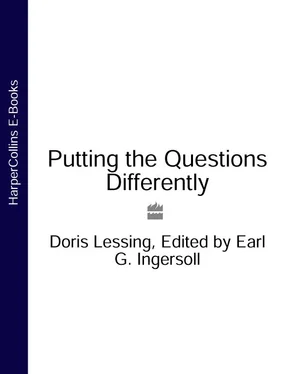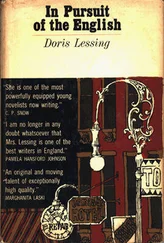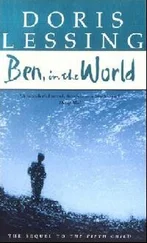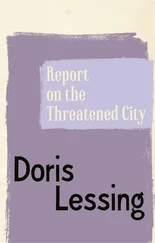Mrs. Lessing’s awareness of her own reputation and her frustrations with the “business” of being a writer are no more clearly evidenced than by the Jane Somers affair. Ten years ago, she decided to write and publish a novel under a pseudonym. She did so – twice – in what she later published in her own name as The Diaries of Jane Somers. In part she wanted to explore her suspicion that the publication of books had become commercialized to such a point that the exigencies of the marketplace and the “bottom line” had clearly obscured traditional interests in literary merit and cultural value. Those who know her writing were not taken in by what she has termed the “hoax” of the Jane Somers novels and, indeed, some became “co-conspirators,” if you will. Others were not so fortunate. Publishers’ readers and book reviewers who wrote the customarily “patronizing” – her term – encouragements of this hypothetical “first novelist” were obviously not amused, when they had damned with faint praise novels by Doris Lessing. Similarly, publishers who turned down the manuscripts without even sending them out to be professionally evaluated were not happy with what the “hoax” had demonstrated. As she became aware, the marketers of books were most concerned that as an unknown writer “Jane Somers” had no “personality” to help them to sell the book. Besides, would there be an “author” to be interviewed as part of their marketing strategies?
The series of conversations has been arranged chronologically from her interviews in the early ’60s to one as recent as 1993. The early interviews appear, despite Mrs. Lessing’s apprehension that her views have changed over the past two decades. Most of the interviews have already appeared in print, some in journals as well known as The Paris Review; others, however, have appeared in smaller magazines such as Kunapipi and Glimmer Train Stories, where they are less readily accessible. Some appear here for the first time as transcriptions of taped interviews, notably those with writers Studs Terkel, Brian Aldiss, and Claire Tomalin. The collection includes translations of interviews in French and German. These pose problems because of the obvious infelicities of style inherent in translations of translations; however, they contain valuable interchanges and emphasize the genuinely international nature of her readership.
The conversations appear with the permission of both those who hold rights to them and Mrs. Lessing, who had the opportunity to read and approve the manuscript. The interviews have been edited to enhance consistency in mechanics, notably American spelling, and to reduce the redundant or unimportant material endemic in the transcriptions of spoken versions of the language. Wherever passages have been omitted in reprinted interviews, the notation “//” indicates such omissions, especially when a hiatus in the text might otherwise be distracting. Occasionally, repeated passages have been preserved to serve as bridges from point to point, or, more importantly, to allow Mrs. Lessing to emphasize points. She herself says, “As I have said and it bears repeating…” or words to that effect. As she reminds us, interviews are an indication more often of the interviewer’s interests than the interviewee’s. However, the reader will discover in these conversations a range of responses to issues and concerns in Mrs. Lessing’s writing. Taken together, they represent a record of a life in writing.
EARL G. INGERSOLL
October 1993
1919
Born 22 October, in Kermanshah, Persia (Iran); parents, Alfred Cook Tayler and Emily Maud McVeagh. Her brother, Harry, was born in 1921.
1924
Moved with her family to a farm near the small town of Banket, Southern Rhodesia (Zimbabwe), where her father grew tobacco and corn.
1933
Ended her formal education at a Roman Catholic high school in Salisbury.
1939
Married Frank Wisdom, a civil engineer. Their children John and Jean remained with their father when their parents were divorced in 1943.
1943–49
Worked as a secretary and stenographer in Salisbury. Participated in a small political group with Marxist roots, but the Communist Party was not sanctioned by the colonial government.
1945–49
Married to Gottfried Lessing, a Marxist immigrant. Their son Peter, born in 1947, accompanied his mother to London when his parents’ marriage ended in divorce and his father returned to East Germany to assume a government post.
1950
The Grass Is Singing (Michael Joseph; New York, Crowell).
1951
This Was the Old Chiefs Country (Michael Joseph; New York: Crowell, 1952).
1952
Martha Quest, the first volume of Children of Violence (Michael Joseph; New York: Simon & Schuster, 1964).
1953
Five: Short Novels (Michael Joseph; Harmondsworth: Penguin, 1960).
1954
A Proper Marriage, the second volume of Children of Violence (Michael Joseph; New York: Simon & Schuster, 1964). Received Somerset Maugham Award of the Society of Authors for Five: Short Novels.
1956
Retreat to Innocence (Michael Joseph; New York: Prometheus, 1959).
1957
The Habit of Loving (MacGibbon and Kee; New York: Ballantine, Crowell, Popular Library).
1958
A Ripple from the Storm, the third volume of Children of Violence (Michael Joseph; New York: Simon & Schuster, 1966).
1962
The Golden Notebook (Michael Joseph; New York, Simon & Schuster). Play with a Tiger: A Play in Three Acts (Michael Joseph).
1963
A Man and Two Women (MacGibbon and Kee; New York: Simon & Schuster, Popular Library).
1964
African Stories (Michael Joseph; New York: Simon & Schuster, Popular Library, 1965).
1965
Landlocked, the fourth volume of Children of Violence (MacGibbon and Kee; New York: Simon & Schuster, 1966).
1966
The Black Madonna and Winter in July (Panther).
1967
Particularly Cats (Michael Joseph; New York, Simon & Schuster).
1969
The Four-Gated City, the fifth volume of Children of Violence (MacGibbon and Kee; New York, Knopf).
1971
Briefing for a Descent into Hell (Jonathan Cape; New York, Knopf).
1972
The Story of a Non-Marrying Man and Other Stories (Jonathan Cape); American title The Temptation of Jack Orkney (New York, Knopf).
1973
The Summer Before the Dark (Jonathan Cape; New York, Knopf).
1974
The Memoirs of a Survivor (Octagon; New York: Knopf, 1975).
1976
Received the French Prix Medicis for Foreigners.
1978
Stories (New York, Knopf).
1979
Re: Colonised Planet 5, Shikasta, the first volume of Canopus in Argos: Archives (Jonathan Cape; New York, Knopf).
1980
The Marriages between Zones Three, Four, and Five, the second volume of Canopus in Argos: Archives (Jonathan Cape; New York, Knopf).
1981
The Sirian Experiments, the third volume of Canopus in Argos: Archives (Jonathan Cape; New York, Knopf).
1982
The Making of the Representative for Planet 8, the fourth volume of Canopus in Argos: Archives (Jonathan Cape; New York, Knopf). Received the Shakespeare Prize of the West German Hamburger Stiftung and the Austrian State Prize for European Literature.
1983
Documents Relating to the Sentimental Agents in the Volyen Empire (Jonathan Cape; New York, Knopf).
1984
The Diaries of Jane Somers (New York: Random House), two novels originally published under the pseudonym Jane Somers as The Diary of A Good Neighbor and If the Old Could… (Michael Joseph, 1983–84; New York, Knopf).
Читать дальше












